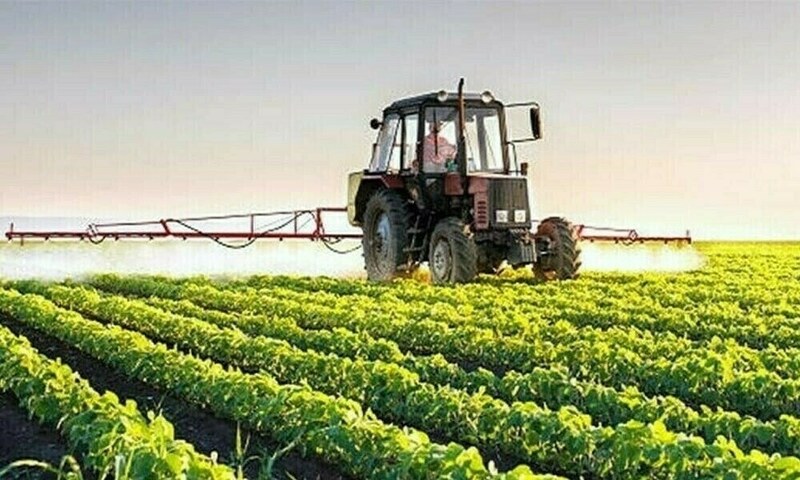By Dr Tasneem Ahmad
Copyright brecorder

Pakistan’s decision in May 2025 to establish the National Agri-Trade and Food Safety Authority (NAFSA) was announced as a milestone in aligning the country’s agriculture and food systems with global requirements. The new body was meant to meet obligations under the WTO’s Sanitary and Phytosanitary (SPS) Agreement, the International Plant Protection Convention (IPPC), Codex Alimentarius Commission (human health) and the World Organisation for Animal Health (WOAH).
In the process, however, the government dismantled the Department of Plant Protection (DPP) and the Animal Quarantine Department (AQD)—institutions that, despite limitations, had built decades of technical expertise. Their replacement by NAFSA raises a fundamental question: has Pakistan taken a step forward in reform, or backward into regression?
At the centre of concern lies the way NAFSA has been structured. Instead of strengthening technical capacity, the authority has been designed with bureaucratic dominance. Its Board is packed with eleven federal/provincial secretaries/additional secretaries, and senior posts, including that of Director General, are reserved for non-technical officers.
For an institution mandated to ensure scientific credibility in plant health, animal health and food safety, this arrangement undermines both competence and confidence. Decisions that ought to be evidence-based risk becoming administrative or political.
Equally troubling is the mismatch of qualifications.
SPS systems across the world are led by officers trained in disciplines such as entomology, plant and animal pathology, virology, microbiology and veterinary science—fields directly relevant to pest control, disease diagnosis and biosecurity. In Pakistan, however, these technical experts have been sidelined in favour of agronomists, whose training focuses on soil fertility and crop production rather than plant and animal health.
Prioritising agronomy over quarantine science shows ignorance or intentional intrigue. NAFSA, therefore, risks weakening the very foundations of inspection, certification and surveillance.
The composition of the Board reflects this weakness. While an academic was recently included, the appointment appears tokenistic: the individual has little to do with quarantine, certification or SPS enforcement. Such gestures do not build confidence among exporters or trading partners, who expect to see experienced practitioners in charge of inspections, pest surveillance, diagnostics and export facilitation.
Meanwhile, the dismantling of DPP and AQD has left their trained technical cadres sidelined. Specialists in pest management, export inspection / certification and laboratory diagnostics—skills developed painstakingly over decades—have been declared surplus or left in limbo. The result is immediate risk to core operations such as pest monitoring and export inspections at a time when Pakistan can least afford shipment rejections or biosecurity failures.
There are also constitutional and institutional conflicts. Provinces already run food safety authorities under the devolved framework of the 18th Amendment. By centralising control in NAFSA, the federal government has created duplication, overlap and the likelihood of prolonged legal disputes. Instead of streamlining regulation, the country may end up with fragmented and conflicting systems.
The transition plan adds further uncertainty. A six-month window for absorbing staff and reorganising systems is unrealistic in an agricultural economy that operates on seasonal cycles. Exports of mangoes, rice, meat and vegetables cannot simply be suspended while bureaucrats reorganise departments. Without a phased roadmap, disruption during peak export seasons—and the resulting economic losses—appear inevitable.
Internationally, the credibility of Pakistan’s export system is at stake. SPS certifications must be issued by officially-recognised National Plant Protection Organisations (NPPOs) and Chief Veterinary Officers (CVOs). If these functions are handed to non-technical or non-civil service officers under NAFSA’s corporatised model, global trading partners may question the authenticity of Pakistani certificates. That could translate into stricter scrutiny, more frequent rejections, or outright trade restrictions.
The stated aim of NAFSA was to modernise Pakistan’s food safety and trade system. But unless its structure is urgently corrected, it may end up weakening rather than strengthening the country’s compliance regime.
Several reforms are critical: appointing technically qualified professionals in entomology, pathology, veterinary science and related disciplines to lead NPPO and CVO functions; ensuring the Board includes practitioners with real experience in SPS compliance; retaining and empowering existing technical cadres; providing resources for accredited laboratories; and adopting a phased, transparent transition that brings provinces on board.
NAFSA still has a chance to succeed—but only if it is built on science, expertise and credibility. Pakistan risks undermining both its food security and its export reputation at a time when global competition and compliance standards are higher than ever if bureaucracy continues to overshadow technical competence.
Finally, it is reiterated, that there is no harm in getting guidelines from advanced countries who have established such inspection service at import and export stages to ensure plant, animal and human health under SPS agreement.
Copyright Business Recorder, 2025



